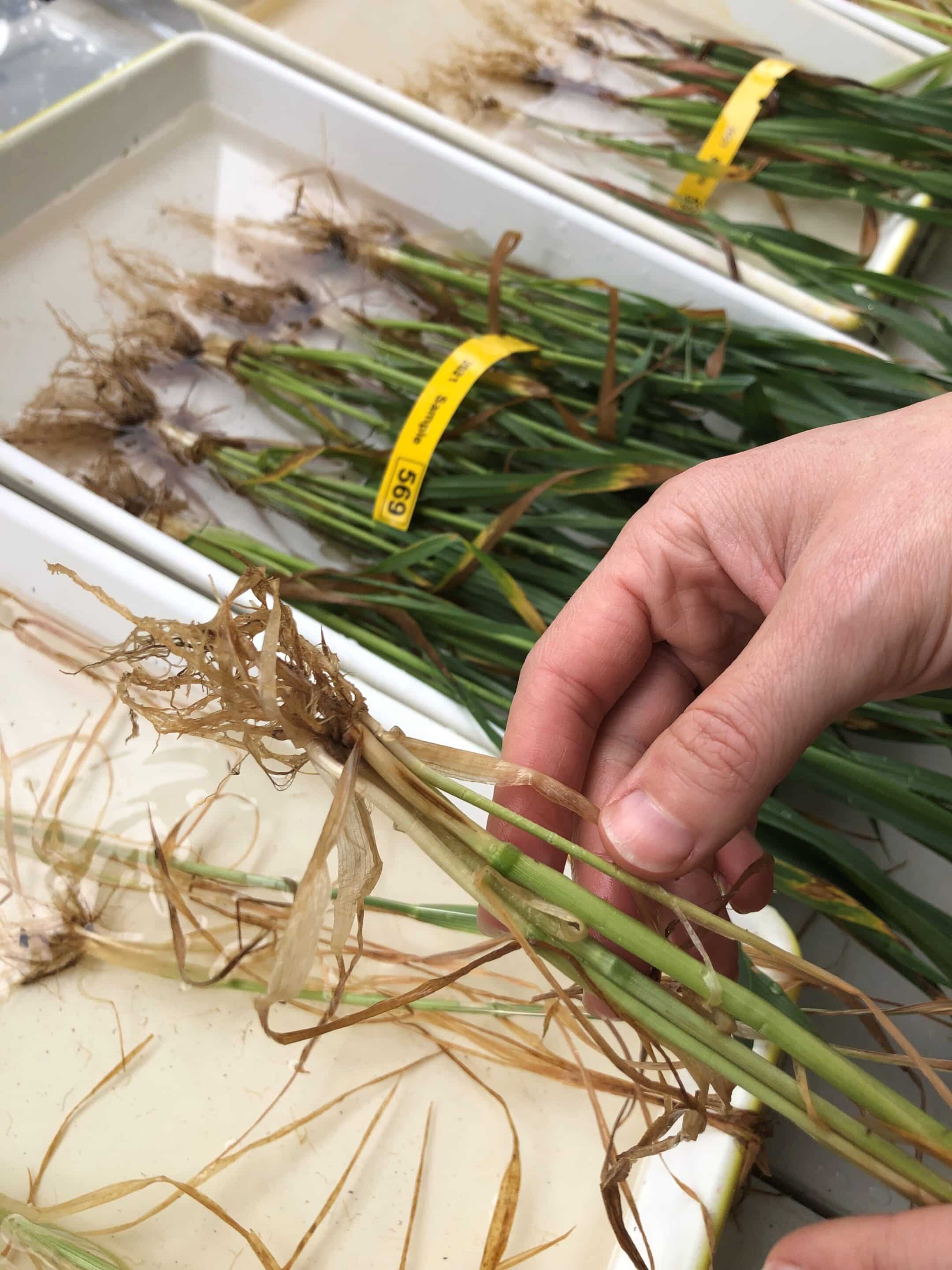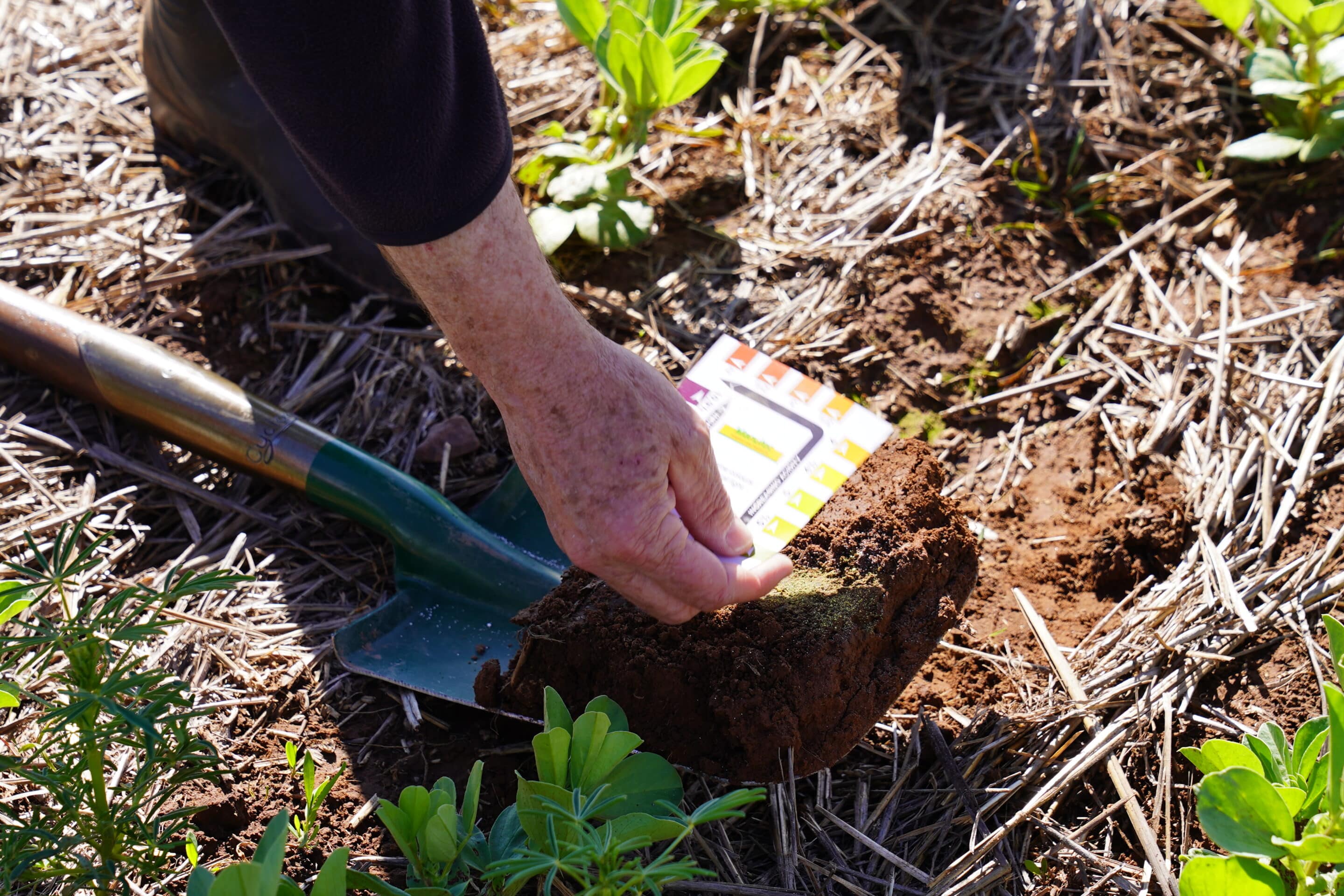START
FINISH

Summary
The effect of a range of pesticides on soil microbial activity was studied on three SA soils in a lab setting and validated on one of the soils in a two-year field trial.
The short-term effects were found to be highly soil-type dependant, with an alkaline Clare Valley soil nitrogen cycling affected by four different pesticides, while carbon cycling was only affected in an acidic Wolseley soil. Phosphorus cycling was not affected at any of the three sites.
The long-term effects at the Clare Valley site found carbon, nitrogen and phosphorus cycling effects. Further investigations are underway in a wider range of soils.
Background
The effect of pesticides on soil non-targeted microorganisms have been investigated extensively. However, most studies have focused on the investigation of a few soil parameters and few pesticides each time. Consequently, results obtained so far for different pesticides are not easily comparable and only relate to a few soil parameters.
Research Aims
The core objectives of the project were to:
- Compare the effect of 20 pesticides on the microbial composition and function in key SA soil types.
- Validate laboratory results using laboratory-to-field assessment.
- Determine the cumulative effects and persistence of negative impacts on selected soil-pesticide combinations.
In The Field
Twenty commonly used pesticides, including fungicides, herbicides and insecticides, were tested on three SA soils: a Clare Valley alkaline loam, Wolseley acidic sandy loam and an Eyre Peninsula soil. Laboratory tests were performed with molecular analyses of soil enzymatic activities. The results, for selected pesticides, were validated in a two-year field trial on the Clare Valley soil at Hart Field Site.
Results
The short-term effects of 20 pesticides varied across soil type and pesticide category. Pesticides showed most effects in the alkaline loam soil from the Clare Valley.
The fungicides azoxystrobin and flutriafol, herbicide chlorsulfuron and insecticide fipronil inhibited nitrogen cycling associated microbial functions (potential nitrification and β-1,4-N-acetylglucosaminidase activity) in the alkaline loam Clare Valley soil. In terms of the carbon cycle, among the 20 pesticides tested, the application of insecticides significantly increased the cellulolytic and chitinolytic microbial activities in the acidic sandy loam soil from Wolseley. The pesticides did not exert any significant effects on phosphorus cycle in any of the three soils.
The repeated application of herbicide propyzamide and fungicide flutriafol inhibited microbial enzymatic activities associated with nitrogen, carbon and phosphorus cycling after a two-year field study. In contrast, the effects of pesticides on the diversity of bacteria, fungi and ammonia oxidizing microorganisms at field level were transient. These results suggest the ability of the microbial community to cope with the repeated application was not accompanied by functional recovery.
Project Participants
University of South Australia: Prof Enzo Lombi, Jowenna Sim, Dr Casey Doolette, Dr Barbara Drigo
Hart Field-Site Group: Dr Sarah Noack, Rebekah Allen
SA Research & Development Institute: Amanda Cook, Brian Dzoma
PIRSA: Dr Melissa Fraser
The Problem
Limited comparable information was available on the effects of multiple pesticides on microbial activity, including nitrogen and carbon cycling, in a range of soils.
The research
This project tested a large number of pesticides for their short- and long-term effects on the microbial activities in three contrasting soils.
More information
Professor Enzo Lombi, University of South Australia
T: 08 8302 5071
E: [email protected]
Value for Growers
Short term effects of pesticides were found to occur in only certain soil types. Further investigation is warranted in nitrogen cycling on a Clare Valley alkaline soil, and carbon cycling in an acidic South-Eastern soil. A follow-up SAGIT project USA03323 will investigate the effect of pesticides on more SA soils.
The outcomes of this project were communicated to researchers and agronomists through the EP Farming Systems Summary 2019, 2022 Annual SAGIT Update, three journal articles and three conference presentations.



